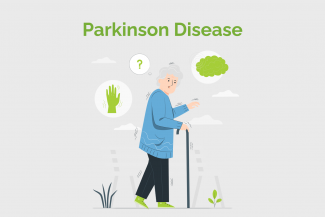Parkinson’s disease is a progressive neurological disorder caused by malfunction and death of nerve cells (neurons) in the brain. Because of the death of nerve cells, people with Parkinson’s don’t have enough of the chemical Dopamine. This causes their movements to slow down. Symptoms get worse over time.
An estimated 7 to 10 million people worldwide are living with Parkinson’s Disease. These numbers are projected to escalate sharply as more people live longer.

Who is at risk of developing Parkinson’s disease?
In spite of much research, the cause of Parkinson’s is still unknown. Risk factors include the following:
- Most common in old age, above 60 years
- More common in men
- More common when there’s a family history of the disease
- People exposed over long periods to certain chemicals and pesticides used to kill weeds and fungus
- People with prolonged exposure to manganese, such as in steel industries
Changed
27/Oct/2015
Condition














